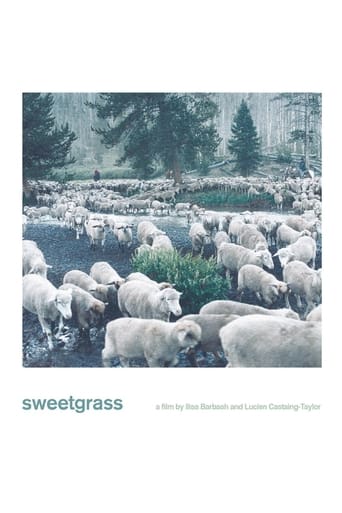[email protected]
I saw "Sweet Grass" with four other people, one of whom enjoyed the Montana scenery, one of whom belonged to a family that had raised sheep and thought the film misrepresented reality and three of whom, counting me, were bored out of their skulls. The dialog -- "Baa" is the dominant word at the start, a multiplicity of curses that would shame a sailor hold sway toward the end, and repetitive out of tune singing is interspersed along with a lot of yips and yells intended to startle the sheep into movement -- is of negative interest. Among the misrepresentations according to the sheep-in-the-family viewer: Mother sheep don't generally recognize their own offspring, certainly not by scent; shearing generally occurs in the summer, not in the dead of winter. (Though I promised my son-in-law 20 sheep as a dowry, which my wife would never allow me to deliver, I can't vouch for any of this. However, there was no slaughtering of sheep for meat, which none of us found credible considering the size of the operation.) However, I can personally attest that this film produces less poetry than the phone book. If you are interested in watching thousands of sheep behave like thousands of sheep and herders struggle with getting them to and from summer pasture, be my guest. But consider yourself forewarned.

